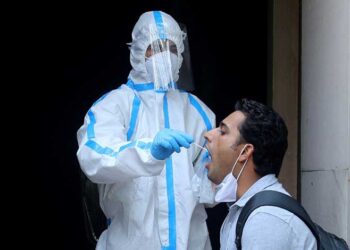Everyone enjoys the monsoon season for its earthy scent of petrichor, long drives, and hot, delectable pakodas served with a cup of tea. However, a number of water- and food-borne illnesses, such as malaria, jaundice, dengue, the flu, and diarrhea, are also linked to this rainy season. In addition, a variety of eye infections are often associated with the rainy season. This humid weather is causing an increase in eye infections, according to doctors. If you have any of the following symptoms linked to your eyes: redness, burning, swelling, discharge, etc., you should see an ophthalmologist.
Here are 5 eye infections that are most common during monsoon:
5 Eye Infections to be Aware of During Monsoon
- Viral Conjunctivitis (Eye Flu): It is an infection that leads to inflammation of the thin membrane that lines the inner surface of the eyelids and the white section of the eyeball. Some of the symptoms include itching, light sensitivity, watery discharge, and redness of the eyelids. Viral Conjunctivitis are highly contagious and can easily spread from an infected person to others if precautions are not followed.
- Dry Eyes: Dry eyes can occur when you’re unable to produce enough liquid tears, also called aqueous fluid. The medical term for this condition is kerato-conjunctivitis. Poor blinking habits while reading or looking at a computer screen for longer periods can cause this problem.
- Corneal Ulcer: A corneal ulcer is an open sore on your cornea. Infection is the leading cause. Symptoms include a red, watery and bloodshot eye; severe eye pain and pus or other eye discharge. A corneal ulcer can lead to vision loss and blindness.
- Stye: It is a bacterial infection that involves one or more of the small glands near the base of your eyelashes. It occurs as a lump on the eyelid. According to doctors, this is extremely common during the monsoon season.
- Trachoma: Trachoma is caused by bacterium chlamydia trachomatis. The infection is responsible for blindness in almost 1.9 million people across the globe. It can be caused through direct touch or towels and flies that have come in contact with the eyes or nose of an infected person.
How to Protect Your Eyes During Monsoon?
- Make sure to wash your hands properly before touch your eyes
- Don’t touch your eyes with dirty hands
- Do not rub your eyes very often
- Don’t share your contact lenses
- Use eye-protective glasses while swimming or when exposed to wind
- Avoid using the swimming pool during the rainy season
Source:In







 Finance
Finance







